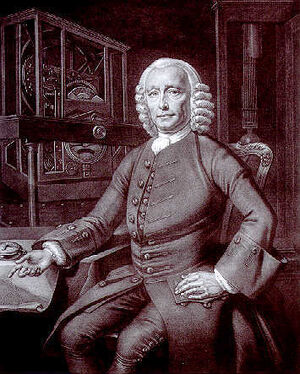John Harrison (nonfiction)
Jump to navigation
Jump to search
John Harrison (3 April [O.S. 24 March] 1693 – 24 March 1776) was a self-educated English carpenter and clockmaker who invented a marine chronometer, a long-sought-after device for solving the problem of calculating longitude while at sea.
His solution revolutionized navigation and greatly increased the safety of long-distance sea travel.
The problem he solved was considered so important following the Scilly naval disaster of 1707 that the British Parliament offered financial rewards of up to £20,000 (equivalent to £2.84 million today) under the 1714 Longitude Act.
Harrison came 39th in the BBC's 2002 public poll of the 100 Greatest Britons.
In the News
Fiction cross-reference
Nonfiction cross-reference
External links:
- John Harrison @ Wikipedia
